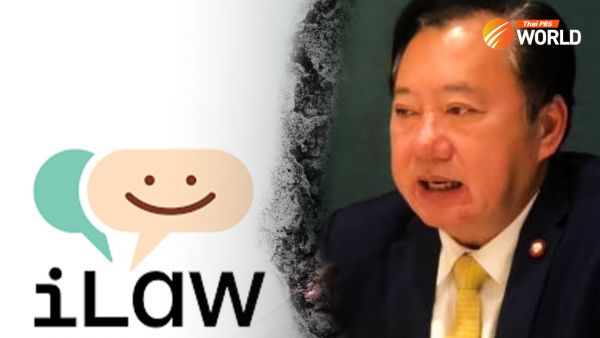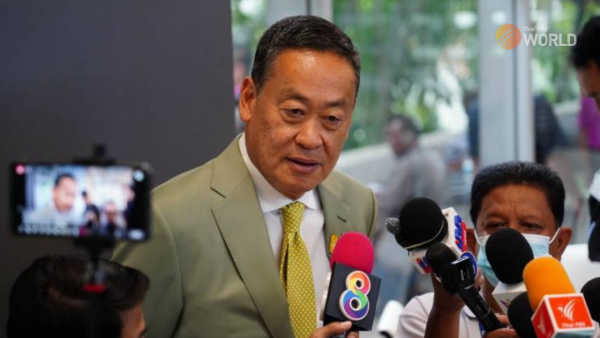Will Sethaput meet the fate of BOT governors defying the government?

Bank of Thailand (BOT) Governor Sethaput Suthiwartnarueput is yielding no ground in his face-off with Prime Minister Srettha Thavisin over the central bank’s interest rate policy.
Against the backdrop of slowing economic growth, Srettha wants the BOT to lower the interest rate from the current 2.5 per cent per annum, the highest in nearly a decade.
The central bank’s Monetary Policy Committee (MPC) has turned a deaf ear to the government’s exhortations and left the rate unchanged at its two previous meetings.
The MPC is scheduled to hold its next meeting in April. Srettha, however, wants the MPC to call an emergency meeting to lower the rate.
His call came after the National Economic and Social Development Council (NESDC), a state think-tank, released a report on the gross domestic product in 2023: GDP grew by only 1.9 per cent, well below expectations and slower than the 2.5 per cent growth in the previous year.
NESDC secretary-general Danucha Pichayanan also urged the central bank to seriously consider a rate cut in order to cushion the blow on citizens from the higher cost of living.
He also wanted the central bank to relax rules on credit card payments, suggesting that the minimum monthly installment payment be reduced from 8 per cent at present to 5 per cent, as the central bank had done during the COVID-19 pandemic. Lowering the credit card installment would offer relief to credit card debtors, Danucha argued.
Despite facing pressure from both PM Srettha and senior bureaucrats, Sethaput is showing no signs of heeding the call for an MPC emergency meeting to consider a rate cut.
Sethaput makes his case
In an interview to Nikkei Asia media outlet on February 21, Sethaput argued that a rate cut was not going to make Chinese tourists spend more, or cause Chinese firms to import more petrochemicals from Thailand, or lead to quicker dispersal of the government’s budget for the fiscal year. He underlined those arguments to justify his opposition to a rate cut at this point in time.
Born on February 1, 1965, Sethaput is the 24th governor of the BOT and a board member of the NESDC, the Securities and Exchange Commission, and the Insurance Commission.
Sethaput has a wealth of experience in economics, policy and financial markets. He has held senior positions with the Siam Commercial Bank Group, the Stock Exchange of Thailand, and the Ministry of Finance, and has served on the board of directors at PTT Exploration and Production, Osotspa, TMB Bank, and the BOT, where he also sat on the MPC.
Prior to returning to Thailand, he was with the World Bank in Washington DC and McKinsey & Co in New York. Sethaput received his BA with highest honors from Swarthmore College and Ph.D in economics from Yale University.
During the 1997-1998 Tom Yum Kung crisis, M.R. Chatu Mongol Sonakul, then a permanent secretary at the Finance Ministry, recruited Veerathai Santhiprabhob, an economist at the International Monetary Fund in Washington, and Sethaput, a senior economist at the World Bank headquarters in Washington, to work at the Fiscal Policy Office.
They assisted former finance minister Tarrin Nimmanahaeminda who served from November 1997 to February 2001, rescuing Thailand from a severe economic crisis. Veerathai and Sethaput were co-directors at the Fiscal Policy Research Institute, a research arm of the Finance Ministry.
Tumultuous ties
As part of reforms of the central bank and the banking sector, Chatu Mongoł later became central bank governor but he was fired in 2001 by then finance minister Somkid Jatusripitak during the Thai Rak Thai government.
News reports suggested that the government was not happy with Chatu Mongol and demanded that he raise the policy rate from 1.5 per cent, as the government considered it too low and it was hurting ordinary savers.
The government also wanted Chatu Mongol to provide financial support to small and medium-sized enterprises.
History would be repeating itself if Sethaput gets ousted before his five-year term ends next year, again by a coalition government led by the Pheu Thai Party which is a successor of the Thai Rak Thai Party.
In the long history of the BOT, governors and finance ministers have rarely worked in harmony during elected governments. For example, Chatu Mongol was fired in 2001. His successors Pridiyathorn Devakula, Tarisa Watanagase and Prasarn Triratvorakul also experienced friction with elected governments over monetary policy.
In comparison, Veerathai, a former central bank governor from October 2015 to September 2020, had no trouble working with a military-backed government.
Sethaput was also appointed by the military-backed government led by General Prayut Chan-o-cha in October 2020, and again worked smoothly with that government.
Guarding BOT’s independence
Sethaput’s defiance could be interpreted as an attempt to guard the independence of the central bank from political intervention.
Any central bank that succumbs to political pressure usually loses market confidence and this often results in sharply falling currency value and fast rising inflation.
“If we look at lessons from Turkey, there is likely to be an increase in the risk premium such as in the currency, equities, and bonds,” said Kobsidthi Silpachai, head of capital markets research at Kasikornbank Pcl in response to a question on what would happen if Sethaput yielded to PM Srettha’s pressure.
A rate cut by Thailand’s central bank would also widen the interest rate differential between the US dollar and Thai baht, which would weaken the baht, according to Kobsidthi.
He agrees with Sethaput’s analysis that many of the ills plaguing Thailand’s economy are mostly supply-side problems, while cutting the interest rate is a demand-side tool, which Sethaput believes, is not the right one to wield now.
By Thai PBS World’s Business Desk






